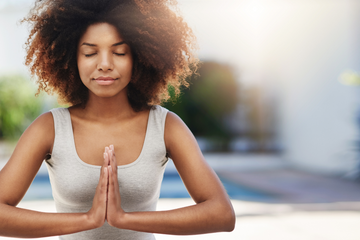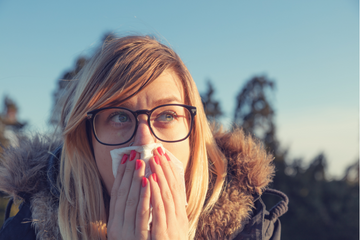Importance of Mental Health and Relaxation
Maintaining good mental health and practicing relaxation techniques are essential for overall well-being. Mental health significantly influences how we think, feel, and act, impacting every aspect of our lives, from our relationships and work performance to our physical health and daily functioning.
During the summer season, with its longer days and warm weather, there is a unique opportunity to focus on mental health and relaxation. The seasonal change can encourage us to spend more time outdoors, engage in physical activities, and take a break from our usual routines, all of which are beneficial for mental health.
Summer is an ideal time to adopt and integrate relaxation techniques into our daily lives. The extended daylight hours can boost our mood and energy levels, while the warmth of the sun can provide a natural source of Vitamin D, which is known to improve mental health. Additionally, the relaxed atmosphere of summer can help reduce stress levels, making it easier to practice mindfulness and other relaxation methods.
Here's why focusing on mental health and relaxation during this season is crucial:
- Stress Reduction: Engaging in relaxation techniques such as meditation, deep breathing, and yoga can significantly lower stress levels, leading to improved mood and overall mental health.
- Enhanced Sleep Quality: The longer days and increased physical activity can help regulate sleep patterns, leading to better quality sleep, which is vital for mental and physical health.
- Improved Physical Health: Reduced stress and better sleep contribute to overall physical health, decreasing the risk of stress-related illnesses and improving immune function.
- Boosted Emotional Resilience: Regular mindfulness practice and relaxation techniques can increase emotional resilience, helping us cope better with life's challenges and reducing the risk of mental health issues.
- Stronger Social Connections: Summer activities often involve socializing, which can enhance our support network and improve our mental well-being through stronger social connections.
Mindfulness and Relaxation Techniques
-
Meditation: Spend at least 10-15 minutes daily in a quiet space, focusing on your breath. This can help clear your mind and reduce stress.
-
Deep Breathing Exercises: Practice deep breathing exercises, such as the 4-7-8 technique (inhale for 4 seconds, hold for 7 seconds, and exhale for 8 seconds) to calm the nervous system.
-
Yoga: Engage in yoga sessions to combine physical movement with mindfulness. Yoga can improve flexibility, strength, and mental clarity.
-
Nature Walks: Spend time in nature, whether it's a walk in the park or a hike in the woods. Nature has a calming effect and can help you disconnect from everyday stressors.
-
Mindful Eating: Pay attention to your meals, savoring each bite and eating slowly. This can help you enjoy your food more and aid in digestion.
-
Journaling: Write down your thoughts and feelings regularly. Journaling can be a great way to process emotions and reflect on your experiences.
-
Progressive Muscle Relaxation: Practice tensing and then relaxing each muscle group in your body, starting from your toes and working up to your head. This can help reduce physical tension and promote relaxation.
-
Mindful Listening: Spend a few minutes each day listening to soothing music or natural sounds. Focus on the different layers of sound to bring your attention to the present moment.
Supplements that Support Mental Well-being
-
Omega-3 Fatty Acids: Found in fish oil, these can support brain health and reduce symptoms of depression and anxiety.
-
Vitamin D: Often called the "sunshine vitamin," it can improve mood and overall mental health, especially if you spend a lot of time indoors.
-
Magnesium: This mineral helps to regulate neurotransmitters and can improve sleep quality and reduce stress.
-
B Vitamins: Essential for brain function, B vitamins can support energy levels and reduce symptoms of anxiety and depression.
-
Probiotics: Gut health is closely linked to mental health. Probiotics can improve gut health and, in turn, support mental well-being.
-
Herbal Supplements:
- Ashwagandha: An adaptogen that helps the body manage stress.
- Rhodiola Rosea: Another adaptogen that can enhance mood and reduce fatigue.
- St. John’s Wort: Known for its mood-boosting properties, though it should be taken with caution and under a doctor's supervision due to potential interactions with other medications.
- Reishi Mushroom: Known as the "mushroom of immortality," reishi can help reduce stress, improve sleep, and enhance overall well-being.
- Lion’s Mane Mushroom: This mushroom supports cognitive function and has neuroprotective properties, making it beneficial for mental clarity and focus.
-
L-Theanine: Found in green tea, this amino acid can promote relaxation without drowsiness and improve focus.
Conclusion: Combining Mindfulness, Relaxation, and Supplements for Optimal Mental Health This Summer
Embracing mindfulness and relaxation techniques during the summer can significantly enhance your mental health and overall well-being. The warm weather and longer days provide the perfect backdrop for engaging in activities that promote relaxation and mindfulness, helping you to recharge and rejuvenate. By incorporating practices such as meditation, yoga, nature walks, and mindful eating into your daily routine, you can reduce stress, improve sleep quality, and boost your emotional resilience.
In addition to these techniques, the right supplements can further support your mental well-being. Reishi and lion’s mane mushrooms, in particular, offer unique benefits. Reishi, known for its calming properties, can help reduce stress and improve sleep, making it easier for you to unwind and relax. Lion’s mane, with its cognitive-enhancing and neuroprotective properties, can improve mental clarity and focus, allowing you to fully enjoy and make the most of your summer activities.
Other supplements like omega-3 fatty acids, Vitamin D, magnesium, B vitamins, probiotics, and herbal supplements such as ashwagandha and rhodiola rosea can also play a crucial role in maintaining and enhancing your mental health. These supplements can support brain function, regulate neurotransmitters, and improve gut health, which is closely linked to mental well-being.
However, consulting with a healthcare provider before starting any new supplement regimen is crucial to ensure they are safe and appropriate for your individual needs. Your healthcare provider can help you understand the right dosages, potential interactions with other medications, and any specific considerations based on your health status.
By combining mindfulness and relaxation techniques with the right supplements, you can create a holistic approach to mental health that supports a stress-free and enjoyable summer season. Taking the time to prioritize your mental well-being will not only enhance your summer experience but also lay the foundation for long-term health and happiness.
Stay #ShieldStrong Everyone!







